Sample 2
Simple Constraints
This lesson will show you how to:
The constraint will force GASolver to
use solutions in which one value must be less than another. In this case one
cell will be required to hold values that are less than a value to be specified
within another cell. Cell B7 will be constrained and cell B16 will hold the
constraint. Using cell references to hold constraints is slightly more complex than using
a constant value but of course it allows your models to be more flexible.
To start Sample
2:
-
Run GASolver by clicking the
 GASolver
desktop icon. GASolver
desktop icon.
-
Open Sample2.xls from the folder
where you installed GASolver (the default folder is c:\program
files\yearstretch GASolver\sample1.xls) OR run Start
| Programs | Yearstretch GASolver | Sample2.
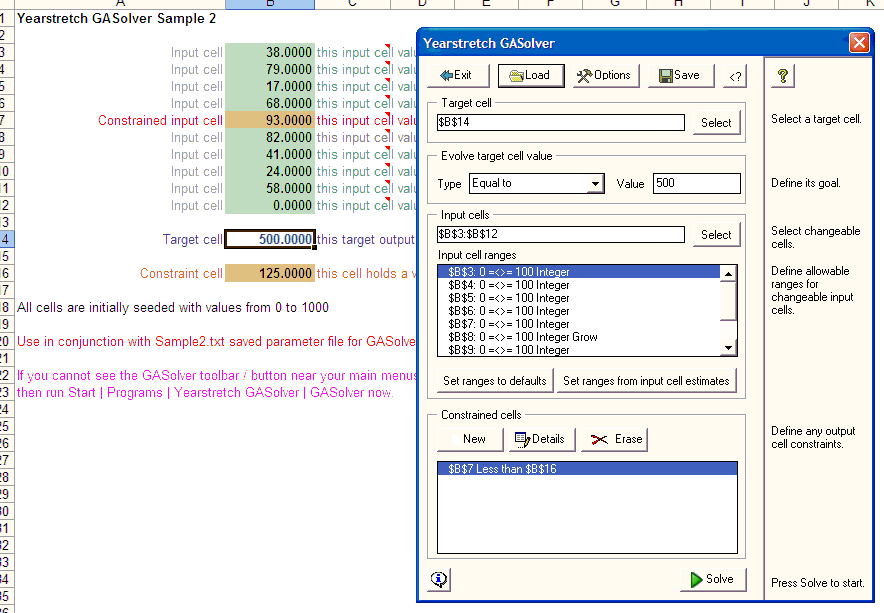
-
Click the lower
 button
to add a new output cell constraint. button
to add a new output cell constraint.
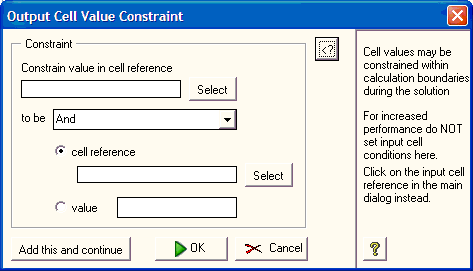
-
Click the
 button at the right of
the Constrain Value in Cell Reference box. button at the right of
the Constrain Value in Cell Reference box.
-
Click the work sheet cell B7. The address will appear in the floating box. This is the cell that will
be constrained.
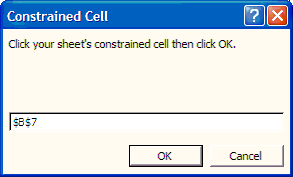
-
Click OK to return the value to
the Constraint dialog.
/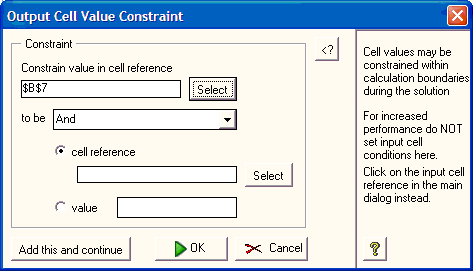
-
Use the pull down menu to change
the 'to be' constraint type to be 'Less than'.
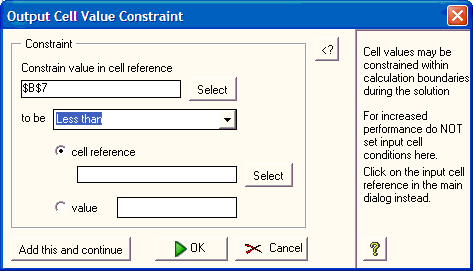
-
Click the
 button at the right of
the Cell Reference box. button at the right of
the Cell Reference box.
-
Click the work sheet cell B16. The address will appear in the floating box. This is the cell that will
be constrained.
-
Click OK to return the value to
the Constraint dialog.
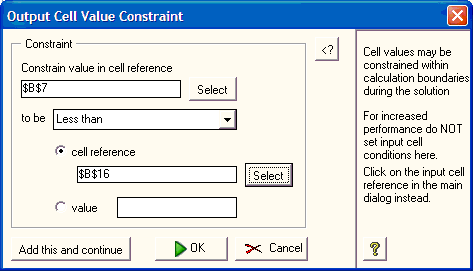
-
Click the
 button. button.
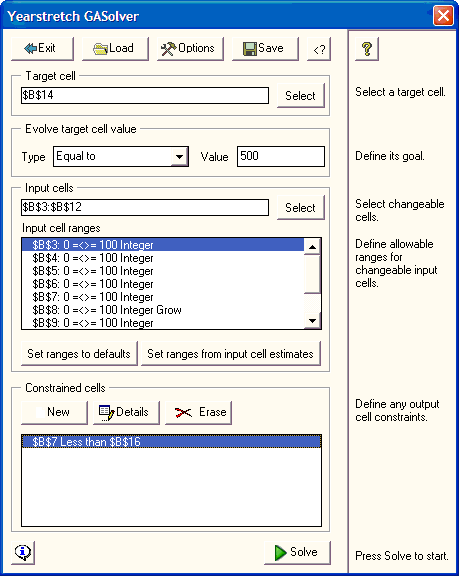
You will see the constraint conditions
summarised in the Constrained cells list. To change a constraint see
-
Click the
 button. button.
We must now set the conditions
under which
GASolver will halt optimising. For the time being ignore the Start Point
settings.
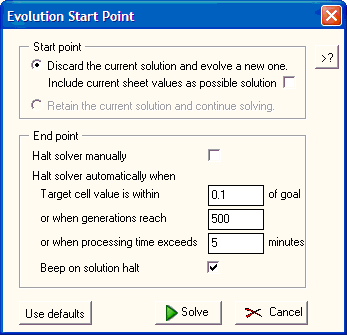
-
Change the options to accept an
answer Target Cell Value Is Within 0.1 of our target value (i.e. 499.9 - 500.1)
-
Change the When Generations
Reach limit to 500.
-
Change the Processing Time
limit to 5 minutes.
-
Click the
 button. Solving will start. button. Solving will start.
You will see progress dialog.
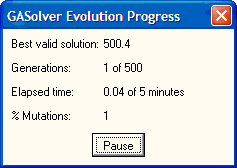
You may stop the process at any time by
clicking the Pause button.
You will see both the input changeable cells and
the output results cell assume differing values in the spreadsheet as the process works towards the
goal.
Version Variation: Early
Excel versions may not halt immediately after you press
the Pause button but will halt
eventually, Excel 2000, 2002 (XP) and above will halt immediately.
When GASolver has located a solution it will
show its results dialog
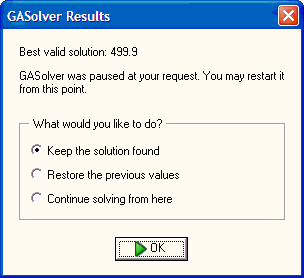
-
If you wish to keep the
solution values found then
select Keep the solution found.
-
If you would rather abandon
the solution and restore the starting
values then select to Restore the previous values.
-
If you would rather like to
continue to search for another then select Continue solving from here.
From this Example Lesson 2 you have learnt to tell GASolver
how to select solutions that where input cells meet certain conditions only.
The settings for Example Lesson 2 are contained
in the Sample2.txt file which may be loaded into GASolver by pressing the
 button from the main dialog and locating the folder where you installed GASolver
(the default folder is c:\program files\yearstretch gasolver). button from the main dialog and locating the folder where you installed GASolver
(the default folder is c:\program files\yearstretch gasolver).
See also
Sample 1,
Sample 3,
Adding
Constraints,
Changing Constraints,
Using
Constraints
|

